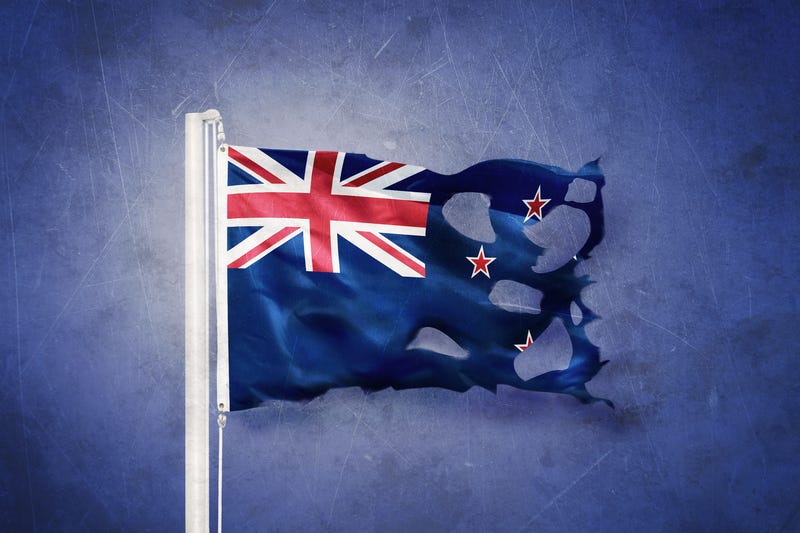Table of Contents
Republished with Permission
Author: Chris Trotter
THERE ARE LESSONS to be learned from the Biden-Trump debate/debacle. Important lessons, which New Zealanders would be most unwise to ignore. The first and most important of these is the need to face some harsh truths.
The American people have been running from the truth for decades. Electing an actor to govern them in 1980 merely confirmed their allergy to reality. Now they are readying themselves to elect Donald Trump for the second time. And, having witnessed Joe Biden’s disastrous debate performance, who can blame them? That the American Republic will struggle to survive such a final and decisive refusal to correct the consequences of its own corruption is unlikely to dissuade the American people from embracing its liquidator.
New Zealanders should, however, resist the temptation to sneer at the USA’s self-inflicted wounds. A dispassionate survey of New Zealand’s present predicament reveals a nation whose First World status can no longer be considered secure, and lacking a political class of sufficient calibre to retain it.
At virtually every level of the New Zealand state, from the lowliest public servant to the Justices of the Supreme Court, there is an alarming absence of evidence that the nation’s predicament is understood. Distractions there are in great number, but a clear-headed grasp of what it takes to hold a country together is not in evidence among those responsible for New Zealand’s administration.
This lack of clarity also pervades the ranks of New Zealand’s elected representatives. These are, with only a handful of exceptions, inadequately educated, lacking in relevant experience, and unadventurous to the point of actual cowardice. New Zealand’s current crop of politicians are place-holders not nation-builders. Unable to rise above the crude calculation of partisan advantage, an understanding of the broader national interest and of the needs of citizens yet to be born is beyond their capabilities.
Accounting for these alarming deficiencies is not easy. No matter how precariously positioned, New Zealand remains a First World country. Its people are educated, and their health preserved, by public institutions that easily bear comparison with those of much larger and richer nations. That being the case, the administration and government of New Zealand should be more than equal to the challenges faced. Likewise, its entrepreneurs and business leaders should be equal to the task of maintaining a productive and profitable economy.
And yet, when it comes to maintaining and extending the nation’s infrastructure, New Zealand’s leaders – private as well as public – are failing dismally. The political unanimity required to recognise, plan, and pay for the projects required to preserve social cohesion, while enhancing economic competitiveness and growth, is no longer a feature of New Zealand’s national life.
The indelible mark left upon a whole generation of New Zealanders by the Great Depression and World War II; an impression that not only permitted men and women of all classes and races to perceive the need to work together for the common good, but also to know – thanks to the bonding experiences arising out of existential danger – that such co-operation was possible.
Depression and war (but especially war) made brothers out of farmers and freezing-workers, professionals and tradespeople. Bullets and bombs were no respecters of who one’s ancestors were, or which particular sailing vessels they arrived in, but incoming ordnance did make clear who was keeping who alive. Such lessons are not easily forgotten.
But, neither are they easily learnt. In the absence of the near universal experiences of economic hardship, the threat of invasion, and the intense comradeship born of armed conflict, the influences of class, race and gender soon recover their power to separate and divide human-beings. Without the common memories born of working, fighting, and sacrificing together, it becomes easier and easier to believe that “some animals are more equal than others”. And the longer that heresy goes unreproved, the harder it becomes to see the point of building anything that benefits anybody beyond one’s own kind.
There was a time when New Zealand politics was a reflection of the efforts of its two largest political parties to both represent and advance the interests of their “own kind”. Labour stood for the working-class. National for farmers, businessmen and (most) professionals. Thanks in large part to the Cold War, however, both parties understood the importance of keeping political sectionalism on a short leash. The beliefs that held New Zealanders together were accorded much greater importance than political ideologies with the potential to tear them apart.
But those beliefs, absent the experiences which informed them, could not escape the challenges of a generation that had not known privation or war. The ideas that kept New Zealand society tight: white supremacy, male supremacy, heterosexual supremacy, capitalism and Christianity; were deemed oppressive and unjust by the most outspoken of the first generation of New Zealanders for whom tertiary education was something more than an elite privilege.
But if these young intellectuals were successful in loosening New Zealand’s tightly wound society, they had also made it easier for the separate strands of that society to be pulled apart. It would become increasingly practical for New Zealand’s now less-connected citizens to look after their own kind – at the expense of all the other kinds.
Inevitably, it was the wealthiest and most powerful New Zealanders who had most to gain, and gained most, from the post-war generations’ great loosening of New Zealand society. In just two generations the nation reverted to the class-ridden, race-divided, sexually-exploitative society it had been before the election of the First Labour Government in 1935. The country’s politics, likewise, reverted to a competitive struggle between the elite defenders of the nation’s farmers and importers, and the elite protectors of its professionals and industrialists.
….This column continues below for fully paid subscribers. To access this, please consider subscribing:









